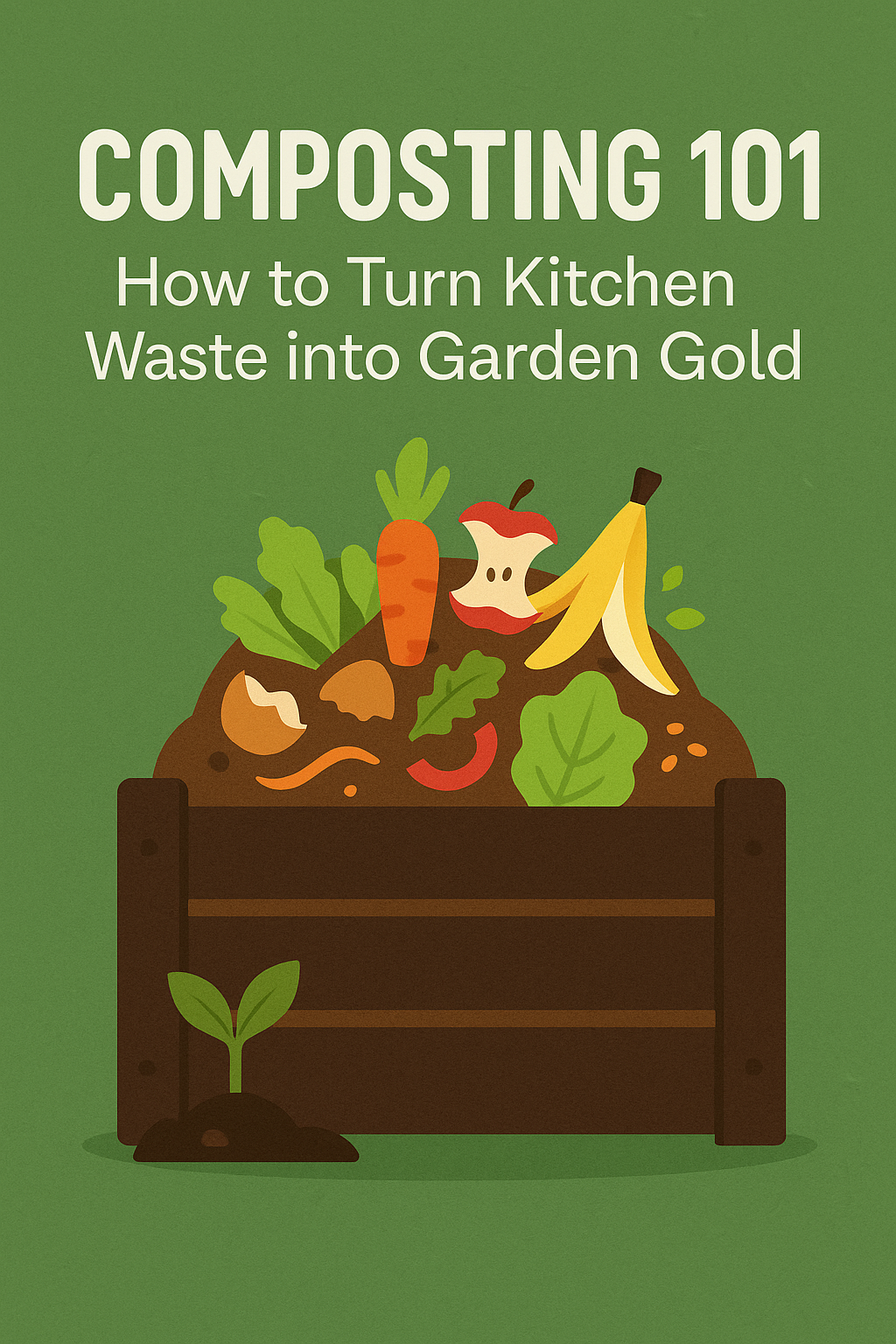
Looking to reduce food waste and improve your garden soil naturally? Composting your kitchen scraps is one of the easiest and most rewarding ways to recycle organic waste and create nutrient-rich compost. With just a few basic steps, you can turn everyday leftovers into garden gold.
What Is Composting?
Composting is the natural process of breaking down organic material — like fruit peels, vegetable scraps, and coffee grounds — into a dark, soil-like substance called compost. This material is full of beneficial microbes and nutrients that enrich soil and boost plant growth.
Benefits of Composting Kitchen Waste
- Reduces the amount of waste sent to landfills
- Improves soil structure and fertility
- Encourages beneficial organisms like worms and microbes
- Reduces the need for chemical fertilizers
- Lowers your carbon footprint and greenhouse gas emissions
What Kitchen Waste Can You Compost?
To make great compost, balance “greens” (nitrogen-rich wet materials) with “browns” (carbon-rich dry materials). Here’s what you can safely compost from your kitchen:
✔️ Compostable Kitchen Scraps:
- Fruit and vegetable peels
- Coffee grounds and filters
- Tea bags (without plastic)
- Crushed eggshells
- Stale bread, rice, or grains (in small amounts)
❌ Do NOT Compost:
- Meat or bones
- Dairy products
- Grease, oil, or fatty foods
- Processed or salty foods
How to Start Composting at Home
1. Choose a Compost Bin or Method
You can compost indoors or outdoors depending on your space. Here are a few beginner-friendly methods:
- Outdoor bin: Ideal for backyards; allows large-scale composting
- Compost tumbler: Enclosed design for faster breakdown and easy turning
- Indoor compost bin: Small, odor-controlled bins perfect for apartments
- Worm bin (vermicomposting): Great for indoors; uses red worms to speed decomposition
2. Balance Your Greens and Browns
A successful compost pile needs the right mix of materials. The general rule is 2 parts browns to 1 part greens. Too many greens can cause odor, while too many browns slow decomposition.
Examples of Browns: Shredded newspaper, cardboard, dry leaves, wood chips
3. Chop and Layer for Faster Composting
Cut kitchen scraps into smaller pieces to help them break down quicker. Layer greens and browns in your bin, and cover fresh food waste with dry materials to reduce smell and pests.
4. Keep It Moist and Aerated
Your compost should be as moist as a wrung-out sponge. If it’s too dry, add more greens or a little water. Stir or turn your pile weekly to let oxygen reach the microbes that power decomposition.
How Long Does Composting Take?
Depending on conditions, composting can take from 6 weeks to 6 months. Turning the pile and maintaining the right moisture and balance will speed up the process. You’ll know it’s ready when it looks like dark, crumbly soil and smells earthy — not rotten.
How to Use Finished Compost
- Mix into garden beds or raised beds to improve soil fertility
- Top-dress houseplants and container gardens
- Use as mulch around trees and shrubs
- Brew compost tea to water and fertilize plants naturally
FAQ: Composting Kitchen Waste
Can I compost citrus peels and onions?
Yes, in moderation. While they take longer to break down, citrus and onions are fine in small amounts and won’t harm your compost if balanced properly.
Does composting smell bad?
Not if done right. A well-maintained compost pile should smell earthy. Strong odors often mean too much wet material or poor airflow.
Final Thoughts
Composting your kitchen waste is one of the most powerful steps you can take toward a more sustainable lifestyle. It’s simple, affordable, and highly rewarding — giving you nutrient-rich compost that boosts your garden naturally. Whether you start with a small bin or go full-scale, your plants (and the planet) will thank you.
Want to go further? Check out our guide on How to Compost at Home for advanced tips and methods.



